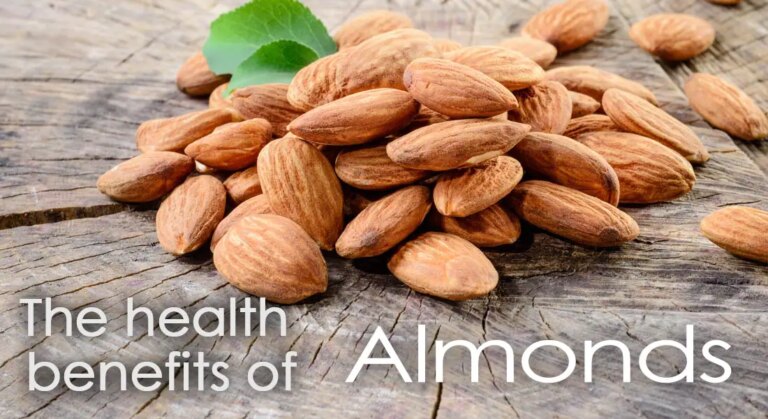Is your health in need of improvement? If so, you may consider adding black beans to your diet. Black bean noodles are packed with nutrients that can benefit your health in many ways. Black beans have the following health benefits:
Nutrition Facts of Black Bean
Beans are legumes, also known as pulses. A unique nutritional profile characterizes meals that include black beans. One cup (172 grams) of boiled, unsalted black beans contains:
- It has 227 calories
- 15 grams of protein
- 1 gram of fat
- 41 grams of carbohydrates
- 15 grams of fiber
- It has 64% of the daily value (DV) of Folate
- It has 40% of the DV of Copper
- It has 35% of the DV of Thiamine
- It has 33% of the DV of Manganese
- It has 29% of the DV of Magnesium
- It has 20% of the DV of Iron
- It has 19% of the DV of Phosphorus
- It has 13% of the DV of Potassium
- It has 7% of the DV of Vitamin B6
- It has 2% of the DV of Calcium
- It has 2% of the DV of Selenium
Black beans are high in fiber and plant-based protein, two elements that assist in decreasing chronic illness risk and are missing from many Westernized diets. Their protein is readily digested, with a 79 percent digestibility rate. Compared to animal-derived sources, black beans are considered an ecologically sustainable source of protein.
Black beans are rich in insoluble fiber, soluble fiber, and resistant starch, all of which have been linked to several Black Beans’ health benefits. They also include calcium, selenium, and a variety of B vitamins. The mineral content of black beans differs considerably depending on where they were grown.
They also contain antinutrients, which are substances that may inhibit mineral absorption.
14 Health Benefits of Black Bean Pasta
Here are the excellent health benefits of black bean pasta.
Black Bean Pasta is a Healthy Alternative to Regular Pasta
Black bean pasta is a great option if you’re looking for a healthier alternative to regular pasta. It’s made from black beans, a good fiber and protein source. Black bean kinds of pasta are also a good source of iron and magnesium.
Black Bean Pasta Is Good for Weight Loss
One serving contains only 180 calories and has 12 grams of fiber and 25 grams of protein. It contains fewer calories per ounce than traditional pasta.
Beans also have fewer carbohydrates, so you’ll eat more of them by weight and per calorie. It means that bean-based pasta will provide you with more food in terms of weight and calories. Satiety can be aided by this, making black bean pasta an excellent choice for individuals wanting to lose weight.
Black Bean Pastas are great for IBS
Black Bean Pasta is gluten-free. Black bean pasta may lessen the symptoms of constipation, diarrhea, bloating, and severe abdominal pain.
Black Bean Pastas are Good for Digestion
Black Bean Pasta is high in fiber which can aid digestion, and some studies suggest it may help with weight loss because the fiber helps you feel full longer. The fiber is a significant amount of roughage. The dietary fiber has a laxative effect that adds bulk to stools and helps to soften them up. Studies have found that fiber helps make it easy for your body to push the stools through the intestinal passage, which improves digestion and helps prevent constipation. Also, you can try digestive enzyme supplements instead.
Black Bean Pasta is Good for Diabetics
Black Bean Pasta is suitable for people with diabetes. Black beans have low sugar content, meaning glucose levels do not spike when consumed. Combining high-quality carbohydrates, lean protein, and soluble fiber in black bean pasta stabilizes blood sugar levels and prevents hunger pangs.
Black Bean Pasta is Rich in Antioxidants
Black bean noodles are high in antioxidants. These chemicals can neutralize free radicals to combat oxidative processes linked to chronic illnesses. As a result, black bean antioxidants may reduce the risk of heart disease, type 2 diabetes, and some malignancies.
Black beans, in particular, contain many polyphenols, especially anthocyanins. Anthocyanins are linked to type 2 diabetes prevention. They’re primarily found in the bean seeds’ outer layer, giving them their dark color. They also account for the hues of red and pink bean strains.
Flavonoids are antioxidants in black beans, including catechin, quercetin, myricetin, and kaempferol. Beans, like all vegetables, are high in fiber and low in fat. While they are not guaranteed to prevent cancer or heart disease, their antioxidant content may be reduced by cooking and storage, with more significant losses occurring at higher temperatures. So store them in the fridge if possible.
Black Bean Pasta May Promote Heart Health
Black bean noodles may help lower blood cholesterol and blood pressure levels by adding them to your diet. Saponin components in black beans have antioxidant activity and cholesterol-lowering effects. The fiber from the beans may also reduce total cholesterol and triglyceride levels.
In addition, research shows that for every 10 grams of total fiber consumed, the chance of dying from heart disease may decrease by 27%. Similarly, eating 5–10 grams of soluble fiber per day can cut LDL (unhealthy) cholesterol levels by five percentage points.
Black Bean Pasta May Help Manage Blood Sugar Levels
Black beans are high in antioxidants and fiber, which may help to regulate blood sugar levels. First and foremost, their anthocyanidin content has been proven to improve insulin sensitivity, meaning it aids your cells’ ability to respond to the hormone insulin. It can result in lower blood sugar levels after a meal as a consequence of this.
Anthocyanidins may also hinder alpha-amylase, maltase, and sucrase activity — three enzymes involved in carbohydrate digestion — which help to promote lower blood sugar levels after eating.
Furthermore, the fiber in black beans may improve a meal’s glycemic index (GI). The GI measures how food raises blood sugar levels in your body. Black beans have a GI of 29 to 38, making them a low-GI food. As a result, they produce a tiny and constant increase in your blood sugar levels.
Black Bean Pasta is High in Protein
Protein has also been found to increase metabolism. It’s partly due to your body’s energy while trying to digest and metabolize it. It implies that increasing your protein intake may help you lose weight.
In the same portion size as regular pasta, black bean spaghetti has 25 grams of protein, an excellent choice for protein-conscious people.
Black Bean Pasta is High in Potassium
A mineral and electrolyte, potassium regulate the body’s electrical activity. These pulses control various bodily functions, including muscular movements, blood pressure, and hydration levels.
Another advantage of potassium is that it acts as a sort of equilibrium with sodium. Sodium, like potassium, is an important electrolyte that causes your body to retain water, whereas potassium promotes its release.
Beans are one of the most potassium-dense foods available. Therefore black bean pasta has almost 10 times more potassium than traditional wheat pasta. If you’re searching for more potassium, look no further; this isn’t even close! Just be careful to always talk to your doctor before making significant changes to your diet.
Black Bean Pasta is High in Fiber
Beans, including black beans, are an excellent source of dietary fiber. Approximately 15 grams of fiber are found in one cup of cooked black beans (172 grams). It’s more than half the recommended daily fiber intake for men and women (38 grams and 25 grams, respectively).
Maintaining a healthy digestive system requires dietary fiber. It helps add bulk to stool, promoting regularity and preventing constipation. Fiber may reduce your risk of diverticular disease, hemorrhoids, and small intestinal bacterial overgrowth (SIBO).
Moreover, fiber benefits weight loss as it promotes fullness after eating. It can help you eat fewer calories and ultimately lose weight.
Also, you can try Fiber Complete instead.
Black Bean Pasta is Gluten-Free
Black bean pasta is an excellent alternative to traditional wheat pasta for those with celiac disease or gluten sensitivity. It’s because it’s made entirely from black beans, which do not contain gluten.
For gluten-free options, ensure the black bean pasta labels don’t contain other gluten-containing ingredients.
Black Bean Pasta is High in Calcium
Calcium is also a required mineral in the human body. It participates in bone and muscle health and strength and controls muscular contractions and nerve transmissions.
The black bean pasta has more calcium than traditional pasta, but not much. Regular pasta has no calcium; the bean-based alternative, on the other hand, provides 120 mg. This only accounts for around 10% of your RDA, so if you want to increase your calcium intake, you may wish to eat other calcium-rich foods.
Black Bean Pasta is High in Iron
Another advantage of black bean pasta, compared to traditional wheat-based pasta, is that it has three times the iron content!
The formation of blood cells requires iron. The red blood cells, or hemoglobin, contain around 70% of your body’s iron reserves. Anemia is a condition in which there aren’t enough red blood cells necessary to deliver oxygen to the body tissues.
Black bean pasta is healthier for those seeking a more iron-rich meal since it contains 30% of your body’s RDA for iron compared to wheat durum pasta’s 10%.
References:
- FoodData Central (usda.gov)
- Glycemic Response to Black Beans and Chickpeas as Part of a Rice Meal: A Randomized Cross-Over Trial – PMC (nih.gov)
- Bioactive Compounds from Mexican Varieties of the Common Bean (Phaseolus vulgaris): Implications for Health – PMC (nih.gov)
- The role of pulses in sustainable and healthy food systems – PubMed (nih.gov)
- Identification of Black Bean (Phaseolus vulgaris L.) Polyphenols That Inhibit and Promote Iron Uptake by Caco-2 Cells – PubMed (nih.gov)
- Black Beans, Fiber, and Antioxidant Capacity Pilot Study: Examination of Whole Foods vs. Functional Components on Postprandial Metabolic, Oxidative Stress, and Inflammation in Adults with Metabolic Syndrome – PMC (nih.gov)
- In silico analysis of antidiabetic potential of phenolic compounds from blue corn (Zea mays L.) and black bean (Phaseolus vulgaris L.) – PMC (nih.gov)
- Dietary Fiber Intake and Mortality from All Causes, Cardiovascular Disease, Cancer, Infectious Diseases and Others: A Meta-Analysis of 42 Prospective Cohort Studies with 1,752,848 Participants | Huang | North American Journal of Medicine and Science (najms.com)
- Do Common Beans (Phaseolus vulgaris L.) Promote Good Health in Humans? A Systematic Review and Meta-Analysis of Clinical and Randomized Controlled Trials – PMC (nih.gov)
- Black beans and red kidney beans induce positive postprandial vascular responses in healthy adults: A pilot randomized cross-over study – PubMed (nih.gov)




















